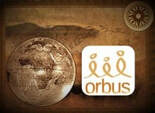Samuel Johnson once declared, "The supreme end of education is expert discernment in all things - the power to tell the good from the bad, the genuine from the counterfeit, and to prefer the good and the genuine to the bad and the counterfeit."
A “complete” education needs to be an education which includes the basics such as reading, writing, maths, science (the proper science, not the modern, man-exalting, ear-tickling, bad behaviour-justifying, evolution promoting “science”), locally useful practical skills, the classical elements of education, such as art, music and languages, and then, one could argue most importantly, Bible-based theology (knowledge of God).
The modern Western world more and more seeks to remove religion, especially all Christian influence, from every public sphere, with arguments that suggest everyone can have input into society except Christians, that all ideas are welcome and equal in the public square, except anything to do with the God of the Bible (the only true and living God, who has revealed Himself for us in the Bible so that we do not have to speculate and make up false gods).
Young people should be encouraged at school to have a true freedom-of-enquiry and encourage personal investigation into the big issues of life, rather than be bullied into the deception that they should remain ignorant and overlook and avoid an honest search for truth regarding the biggest issues like, "where did we come from?", "is there a God"? etc.
I agree with G.K. Chesterton, who wrote in 1914: “Because the elementary school doesn't teach theology, it must be excused when it doesn't teach anything. The bias of the modern world is so enormous that it will allow a thing to be inefficient as long as it is also irreligious.”
Students should be encouraged to be able to think for themselves and to openly be able to investigate religious and theological matters, starting with the objective truths revealed for all mankind in God’s Word the Bible.
The Western world lives under a government imposed secularism. Many people today turn their noses at the suggestion of including the Christian religion in a child’s education. They would rather that children be taught to believe in nothing (things without any hope, such as the "theory" of evolution), or everything (relativism), or to be taught to just remain ignorant, to leave God out of the picture, to grow up refusing to ever investigate the great questions of human existence, to see for themselves if there is any truth. “Don’t talk about religion” they tell children. To borrow a response from Chesterton: How absolutely absurd!
Those who demand religion and religious people be kept out of contributing to society, those who demand to "keep religion and politics separate" are trying to get their own way without being open to having their own beliefs or agendas investigated. Their beliefs are often indefensible when honestly investigated, which is why they so vehemently push for ignorance to reign, rather than honest and open intellectual enquiry into religion, into atheism and into evolution.
They are therefore in effect "anti-education," they do not want people to have a complete education. Without an honest and open-minded investigation of the biggest selling book of our world, the Bible, a person cannot be completely educated. Those who hate God hate His word and demand that the Bible be ridiculed and ignored. Why should we be so ignorant though?
Ironically some of the biggest, most intolerant, promoters of ignorance in our modern Western societies are the radical atheists, and the militant promoters of sexual deviancy and immorality, who fiercely demand that the God they insist doesn't exist be silenced. Why is that?
"It is absurd for the Evolutionist to complain that it is unthinkable for an admittedly unthinkable God to make everything out of nothing, and then pretend that it is more thinkable that nothing should turn itself into everything." G.K. Chesterton.
To ignore the big questions which confront humanity and to insist that our schools do not mention God, or deal satisfactorily with topics such as "suffering", "truth", "death", "eternity", the big things which impact every one of us, is to do a grave disservice to our children. The reality is that there is death, there is suffering brought about by wrong living. There is an answer to the questions about our origin. There is a solution to the problem of death and suffering. There is a God who has revealed Himself to us through the Holy Scriptures, and who has revealed His plan of salvation.
Below are some further interesting quotes from Chesterton on education:
“The whole point of education is that it should give a man abstract and eternal standards by which he can judge material and fugitive standards.” (Illustrated London News 3-29-30)
“The only real object of all education is to teach people the proportions of things, that they may see what things are large and what small: we seem bent on teaching to prefer in everything what is small to what is great, what is doubtful to what is certain, and what is trivial to what is eternal.” (ILN Aug. 24, 1912)
“The truth is that the modern world has committed itself to two totally different and inconsistent conceptions about education. It is always trying to expand the scope of education; and always trying to exclude from it all religion and philosophy. But this is sheer nonsense. You can have an education that teaches atheism because atheism is true, and it can be, from its own point of view, a complete education. But you cannot have an education claiming to teach all truth, and then refusing to discuss whether atheism is true.” (The Common Man)
“About half the history now taught in schools and colleges is made windy and barren by the narrow notion of leaving out the theological . . . Historians seem to have completely forgotten two facts - first that men act from ideas; and second, that it might, therefore, be as well to discover which ideas.” (ILN 5-13-11)
“Because the elementary school doesn't teach theology, it must be excused when it doesn't teach anything. The bias of the modern world is so enormous that it will allow a thing to be inefficient as long as it is also irreligious.” (ILN 7-18-14)
“There is something to be said for teaching everything to somebody, as compared with the modern notion of teaching nothing, and the same sort of nothing, to everybody. For what we force on all families, by the power of the police, is not a philosophy but the art of reading and writing unphilosophically.” (All I Survey)
“Every education teaches a philosophy; if not by dogma then by suggestion, by implication, by atmosphere. Every part of that education has a connection with every other part. If it does not all combine to convey some general view of life, it is not an education at all.” (The Common Man)
“The moment men begin to care more for education than for religion they begin to care more for ambition than for education. It is no longer a world in which the souls of all are equal before heaven, but a world in which the mind of each is bent on achieving unequal advantage over the other.” (The Common Man)
“These are the days when the Christian is expected to praise every creed except his own.” (ILN 8-11-28)
“Great truths can only be forgotten and can never be falsified.” (ILN 9-30-33)
“Teach, to the young, men's enduring truths, and let the learned amuse themselves with their passing errors.” (ILN 10-15-10)
“A teacher who is not dogmatic is simply a teacher who is not teaching.” (What's Wrong With the World)
“Education is only the truth in a state of transmission; and how can we pass on truth if it has never come into our hand?” (What's Wrong with the World.)
and His plan of salvation through Jesus Christ alone, available through faith alone, given by God's grace alone
Below are some further interesting quotes from Chesterton on education:
“The whole point of education is that it should give a man abstract and eternal standards by which he can judge material and fugitive standards.” (Illustrated London News 3-29-30)
“The only real object of all education is to teach people the proportions of things, that they may see what things are large and what small: we seem bent on teaching to prefer in everything what is small to what is great, what is doubtful to what is certain, and what is trivial to what is eternal.” (ILN Aug. 24, 1912)
“The truth is that the modern world has committed itself to two totally different and inconsistent conceptions about education. It is always trying to expand the scope of education; and always trying to exclude from it all religion and philosophy. But this is sheer nonsense. You can have an education that teaches atheism because atheism is true, and it can be, from its own point of view, a complete education. But you cannot have an education claiming to teach all truth, and then refusing to discuss whether atheism is true.” (The Common Man)
“About half the history now taught in schools and colleges is made windy and barren by the narrow notion of leaving out the theological . . . Historians seem to have completely forgotten two facts - first that men act from ideas; and second, that it might, therefore, be as well to discover which ideas.” (ILN 5-13-11)
“Because the elementary school doesn't teach theology, it must be excused when it doesn't teach anything. The bias of the modern world is so enormous that it will allow a thing to be inefficient as long as it is also irreligious.” (ILN 7-18-14)
“There is something to be said for teaching everything to somebody, as compared with the modern notion of teaching nothing, and the same sort of nothing, to everybody. For what we force on all families, by the power of the police, is not a philosophy but the art of reading and writing unphilosophically.” (All I Survey)
“Every education teaches a philosophy; if not by dogma then by suggestion, by implication, by atmosphere. Every part of that education has a connection with every other part. If it does not all combine to convey some general view of life, it is not an education at all.” (The Common Man)
“The moment men begin to care more for education than for religion they begin to care more for ambition than for education. It is no longer a world in which the souls of all are equal before heaven, but a world in which the mind of each is bent on achieving unequal advantage over the other.” (The Common Man)
“These are the days when the Christian is expected to praise every creed except his own.” (ILN 8-11-28)
“Great truths can only be forgotten and can never be falsified.” (ILN 9-30-33)
“Teach, to the young, men's enduring truths, and let the learned amuse themselves with their passing errors.” (ILN 10-15-10)
“A teacher who is not dogmatic is simply a teacher who is not teaching.” (What's Wrong With the World)
“Education is only the truth in a state of transmission; and how can we pass on truth if it has never come into our hand?” (What's Wrong with the World.)


